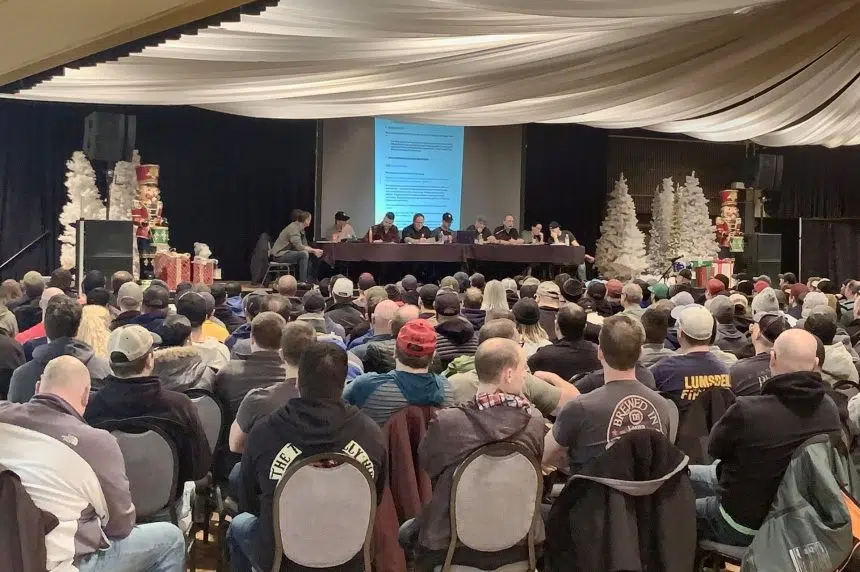Unionized workers at Regina’s Co-op Refinery have voted overwhelmingly in favour of a strike if it’s necessary.
According to a media release issued Tuesday by Unifor Local 594, 97.3 per cent of those who voted were in favour of strike action.
“We are pleased but not surprised,” Kevin Bittman, president of Unifor Local 594, said in the release. “Our members are justifiably frustrated. Morale is low.
“Nobody enjoys going to the job they love when Co-op continues to show such pettiness and contempt for their expertise and value.”
In an emailed statement, a refinery spokesman said it was “disappointing” that the union decided to take a strike vote but noted “it is a decision that we hope gets them back to the table.”
The union declared an impasse in negotiations on Sept. 26, which triggered conciliation. When the sides couldn’t reach a new collective bargaining agreement with the help of a mediator by Nov. 12, they entered a 14-day cooling-off period.
That ended last week, but the company didn’t issue a lockout notice and the union didn’t call for a strike.
The membership’s vote — which started Monday night and concluded Tuesday morning — doesn’t mean a strike is imminent.
In its media release, the union said its 800 members who work in 21 different job classifications at the refinery “will continue keeping the plant safe and profitable while its bargaining team contemplates next steps.”
The union’s main concern is with what it calls “pension security.”
Unifor says its members want the option to choose whether to enrol in a defined contribution plan. Under such a plan, the employee and the company agree to a specific amount they would contribute each year.
By contrast, a defined benefit plan would have the company pay a specified amount of income, calculated using a formula that factors in working income and years of service.
The union has accused the company of wanting to “terminate the defined benefit plan option, or reduce it to a gutted version of what we were promised.”
In an open letter released over the weekend, the company said it is giving workers two options.
The first is to contribute to their current defined benefit pensions. The second is to switch to Co-op’s defined contribution plan, which the company describes as “industry-leading” and “generous” and is what it offers to managers.
Co-op says it would contribute six per cent to employees’ pension, even if the workers choose not to pay into it.
Workers would be able to contribute four per cent, matched by the company, making the total contribution 14 per cent.
“The union is willing to make changes to pension liabilities but will not budge on pension security for every worker,” Scott Doherty, the lead Unifor negotiator, said in the media release.
“At this time when Co-op is raking in billions in profit, anything less is an unnecessary concession.”
The company began preparing Oct. 15 for a potential work stoppage. It started construction on a work camp, where temporary contract workers and management would be housed in the event of a strike.
Those workers would operate the refinery in the absence of the Unifor members.
In its statement, the refinery said its priority “is to get a deal done at the bargaining table and avoid a labour disruption.” To that end, it encouraged the union to resume negotiations in the coming weeks.
“We certainly have no intention of locking out employees prior to Christmas,” the refinery’s statement read. “However, we will have to issue a lockout notice if we feel the union is creating an unsafe operating environment.
“We hope Unifor chooses to use December to come back to the table and actively negotiate, and not strike.”











